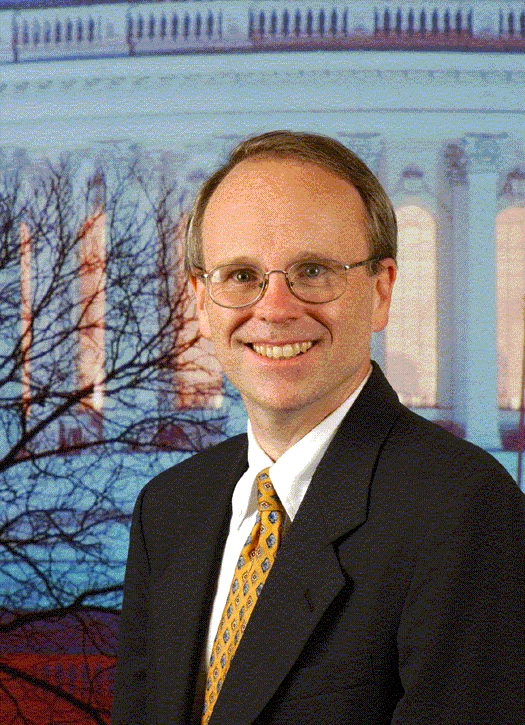Amid the week-long procession of buttoned-down, business-suited speakers who commanded the stage during the Annual Meetings week of the World Bank and International Monetary Fund, the most thought-provoking comments may have come from someone who was not outfitted in business attire at all – but who was instead wearing a clerical collar.
It seemed fitting that the remarks by (some might say) the week’s most authoritative participant occurred on a Sunday morning, at an hour when many Washingtonians habitually heed an authority even more elevated than the Bank and the Fund. The major attraction at the IMF’s day-long “Future of Finance” conference was the Archbishop of Canterbury, Justin Welby, whose stature lent a special gravitas to the already-serious tone of the Fund forum’s focus on scrupulous ethics as a bedrock principle of sound capitalism.
On a panel with some of the titans of worldly finance – including the leaders of the IMF and the Bank of England – only someone of Welby’s ecclesiastical renown could have stolen the show. Although he did his down-to-earth best to try to avoid upstaging his fellow panelists – quipping, “I feel rather like a lion in a den of Daniels at the moment . . . slightly nerve-wracking” – the leader of the worldwide Anglican Communion was clearly the marquee draw for the throng that packed the Jack Morton Auditorium, spilled beyond the extra overflow rooms and jammed the adjoining corridors.
Citing the need for “heroism in the classic sense” to overcomethe spirit of “recklessness” that recently pervaded much of the financial industry, Welby called for a return to “ethical and worthwhile banking.” He urged everyone working in finance to aim to “leave a mark on the world that contributes to human flourishing.”
Welby – himself a former financier, who traded derivatives and futures before he joined the clergy – recounted the misgivings of the mournful bankers whom he had interviewed while serving as a member of the U.K.’s Banking Standards Commission in the wake of the 2008 financial crash. Welby recalled the lamentations of a deeply penitent banker who had been “broken by the experience” of leading his bank to ruin: In retrospect, reasoned the banker, “you can either have a big bank that’s simple, or a small bank that’s complex, [but] you cannot have a big complex bank and run it properly. . . . If only we had kept things simple.”
Welby’s call for the highest standards of conduct in the financial sector was matched by the exhortations of his fellow panelists – including IMF Managing Director Christine Lagarde, who reminded the audience that every financier must see himself or herself as “a custodian of the public good.” Lagarde's message was underscored by Bank of England Governor Mark Carney – who also leads the global Financial Stability Board – who deplored the pre-crash “disembodiment and detachment of finance” from the rest of the economy.
Only by upholding the most exacting ethical standards, said Largarde and Carney, can financiers rebuild public confidence in the financial sector – confidence that, in Lagarde's words, “builds over time and dies overnight.”
The regrets voiced by the panel’s private-sector financiers contributed to the panel’s almost confessional tone.
“If we can’t get the basic incentives right, it’ll be hard to get the right outcomes,” said Philipp Hildebrand, who had served as a senior central-bank official during the financial crisis before returning to the private sector. He reflected that “with wrong incentives, you end up with a wrong business model,” which in turn attracts “the wrong kind of people” who are prone to take excessive risks. Thus he underscored the need for “a personal transformation” within the spirit of every business leader.
Putting an even sharper point on the source of the problem, longtime financier Kok-Song Ng regretted that “a virus entered the system” in the years leading up to the crash, as financial firms deliberately recruited profit-driven “mercenaries” to run their trading desks. Those firms ignored the explosive risks being taken by their hired-gun traders, because they succumbed to “the great temptations for those in ‘the money world’ to want to make a quick buck” no matter how dangerous their tactics might be.
Even as they reviewed the long list of strengthened safeguards that have been put in place since the crash, Carney and Lagarde echoed Hildebrand’s warning that a “personal transformation” is needed among executives in financial firms – with Carney declaring that “ultimately, it’s about the individual seeing himself as a custodian” of a financial system that must serve the broader economy and champion the public interest.
There is no substitute for stronger ethics training programs for financiers, said Lagarde. She suggested that the financial sector adopt mandatory programs similar to the continuing legal education classes that lawyers must pursue. Moreover, she said that there is no substitute for the rigorous cross-examination that every financier should impose on himself or herself, asking, “What would my mother say about that?”
“Bad business models corrupt good people – that always happens,” said the Archbishop, calling for more “rigorous and painful and self-critical reflection” by all financial executives. Although “we are still in a place . . . where the business models are flawed fundamentally,” said Hildebrand, a return to uncompromising financial ethics – along with a commitment to “personal transformation” that shuns misconduct – can prevent a re-occurrence of the pre-crash pattern. The glorification of moneymaking in that era of excess, he said, was “not just the failure of individuals but the collective failure of society at large.”
As they heard the private-sector executives' mea culpas, many in the Sunday-morning audience – hoping that the financial industry may be genuinely ready to atone for the bad old days of Wall Street swashbuckling – were probably murmuring the adage, “From their lips to God’s ears.”



Join the Conversation